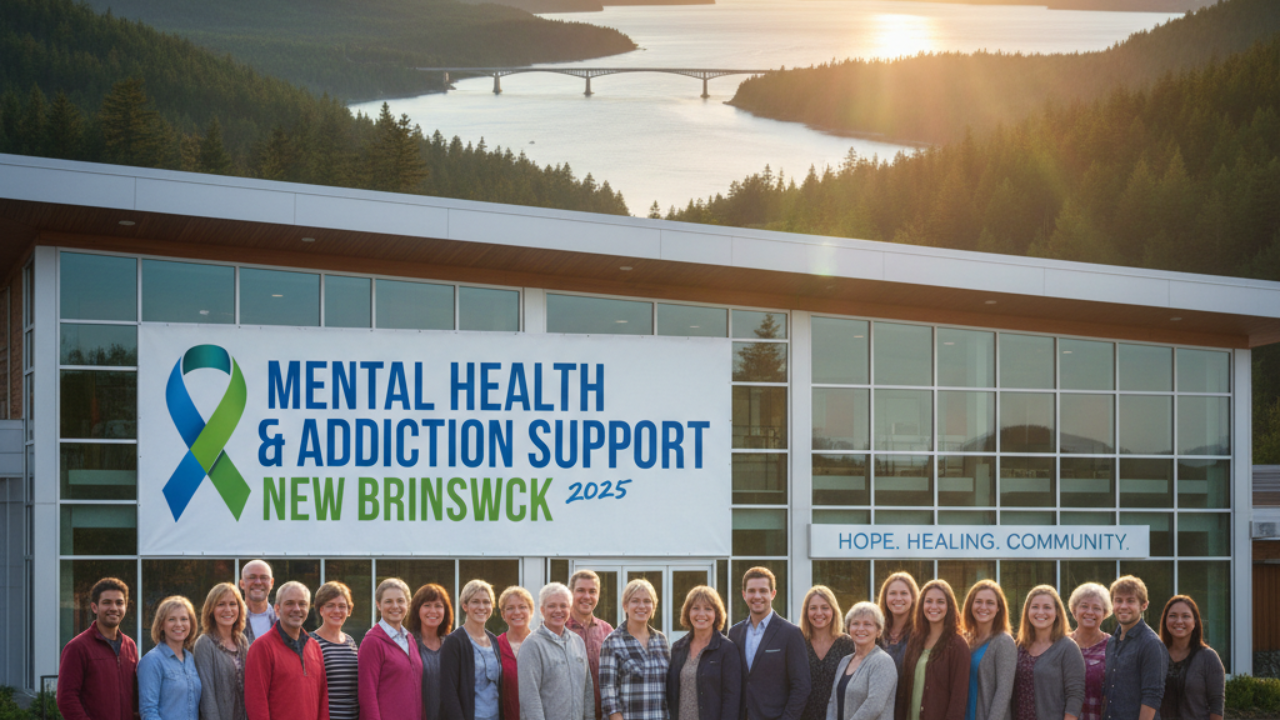
Sacramento Helicopter Crash Leaves Three Crew Memb
A medical helicopter crashed on Highway 50 in Sacramento; three crew members are critically injured,

Coping with mental health challenges or addiction can feel overwhelming, especially if you're unsure where to turn. In New Brunswick, there are several dedicated supports, helplines, and crisis services designed to help people in need — whether you live in Fredericton, Moncton, Saint John, or rural areas. Below is a clear, up-to-date guide to what’s available in 2025, how to access help, and what you can expect.
A province-wide helpline operates 24/7, offering bilingual, confidential support for mental health and substance use concerns. Callers can speak with trained clinicians who provide guidance, crisis intervention, or referrals to local services. The helpline also offers navigation support for families, community agencies, and individuals seeking help.
Helpline number: 1-866-355-5550
This service is central to New Brunswick’s mental health support network.
If you or someone you know is in crisis, including having thoughts of self-harm or suicide, the following services are critical:
Suicide Crisis Helpline (Canada): Dial 988 (call or text) to reach a crisis responder available 24/7.
In emergencies where life is at risk, call 911 immediately or go to your nearest hospital emergency department.
These lines are designed to provide immediate emotional support, de-escalation, and connection to further care.
Mobile crisis teams bring support into the community when people are in crisis. They may dispatch social workers, nurses, or mental health clinicians to respond where people are — home, public spaces, or wherever the person feels safe. This service helps reduce the need for hospitalization when possible.
Some contact numbers and hours:
Fredericton area: noon to 10 p.m. daily
Moncton area: (serving Greater Moncton)
Saint John area: 11 a.m. to 11 p.m.
Miramichi area and others as local teams cover
New Brunswick’s regional health authorities (Horizon Health Network in central/southern NB, Vitalité Health Network in northern and southeast regions) provide outpatient mental health and addiction clinics, counseling, group therapy, psychiatric assessments, and follow-up services. Individuals may access these services via referrals from a family doctor or through direct contact with the local mental health centre.
Additionally, the Canadian Mental Health Association of New Brunswick offers information, advocacy, referrals, and community programs (though not direct clinical counseling in many cases).
Young people can access youth-specific mental health and addiction resources through Bridge the gapp (a provincial mental health navigation platform), local youth wellness clinics, and school-based supports. Programs are designed to help with early intervention, counseling, peer support, and connection to ongoing treatment.
Indigenous individuals may also use the Hope for Wellness Helpline, which offers culturally appropriate support and crisis services.
When you call a helpline or access a mobile crisis service, expect:
A safe, nonjudgmental listener
Assessment of your risk and emotional state
Help in identifying immediate coping strategies
Referrals to appropriate services (counseling, outpatient care, inpatient care if necessary)
Follow-up support or connection to longer-term resources
For outpatient or community services, you may face waitlists depending on where you live, how urgent your situation is, and capacity of local resources.
Reach out early — don’t wait until things hit a breaking point.
Have your basic information handy: name, contact, health card number, region.
Ask directly about wait times, eligibility criteria, and alternative services in your area.
Use your family doctor or nurse practitioner to help with referrals.
If you’re in rural or underserved areas, mobile crisis or telehealth services may be your fastest path to support.
For addiction support, ask specifically for substance use or recovery programs to match your needs.
Some of the challenges NB faces in mental health and addiction care include:
Long wait times for outpatient services and counseling
Limited resources in remote or rural areas
Stigma and lack of awareness that may delay help-seeking
Workforce shortages: fewer mental health professionals in some regions
Fragmented coordination between services (hospital, outpatient, community)
Despite these, the province continues to invest in expanding supports, improving navigation, and strengthening crisis response systems.
Timely mental health and addiction support improves quality of life, prevents crises, and reduces burden on emergency and acute care systems. Providing accessible, compassionate, and regionally equitable care fosters healthier, more resilient communities across New Brunswick.
Disclaimer:
This article is for informational and supportive purposes only. It reflects available mental health and addiction resources in New Brunswick as of 2025. Hotlines, operation hours, service availability, and eligibility may change — always verify with local health authorities or service providers in your area.